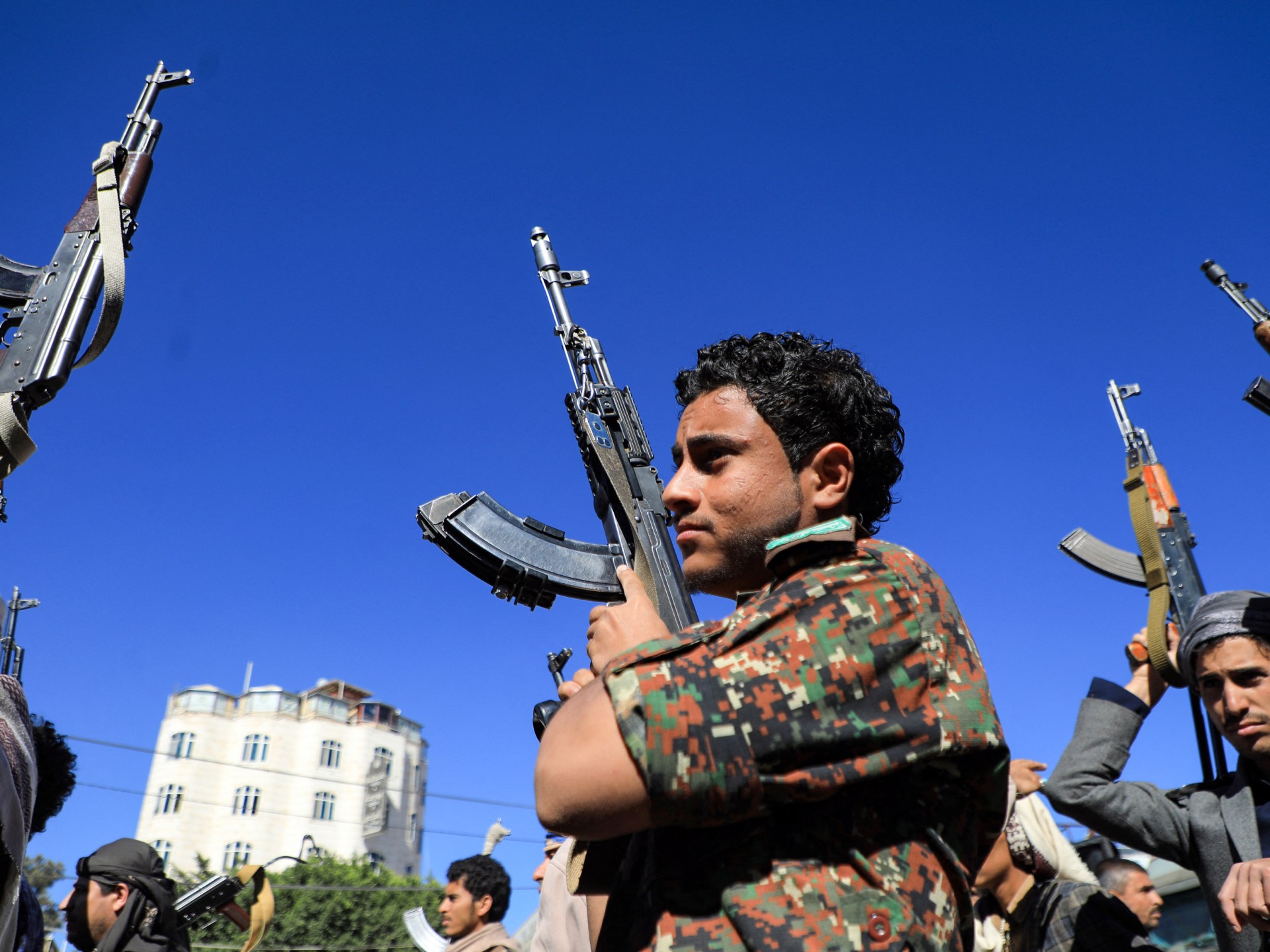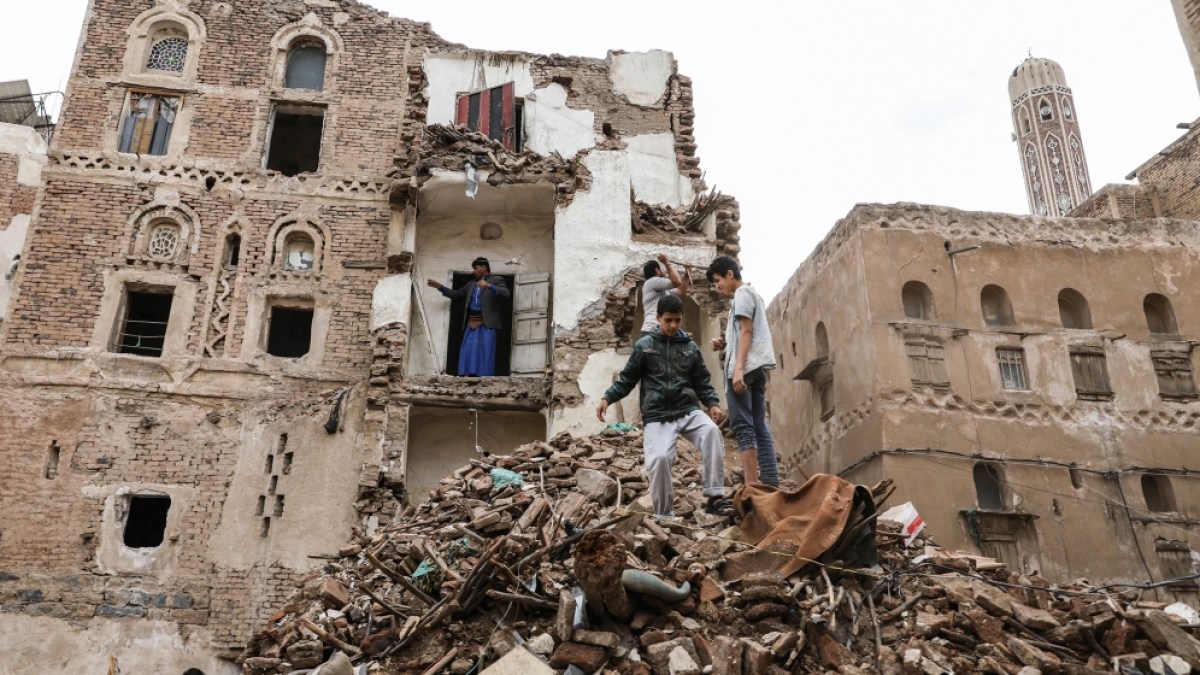- Joined
- Mar 30, 2016
- Messages
- 81,814
- Reaction score
- 20,426
- Location
- Chicago
- Gender
- Male
- Political Leaning
- Independent
“ According to Dahfash, by August 2018, the fighting had led to the deaths of 33 members of his family, mostly women and children, forcing the rest to flee.
“More than three years into our displacement and we are unable to return to our homes,” Dahfash told Al Jazeera from his new home in the capital, Sanaa. “We are unable to see or get together with our family members, who are all displaced in different areas.”
Dahfash left al-Ko’ea a few months before the Stockholm Agreement was signed by Yemen’s warring parties in December 2018.
The deal stopped an offensive by the Joint Forces, a Saudi-led coalition backed group, to take Houthi-held Hodeidah city, which is a major port of entry for food, goods and oil.
Yet, despite the Stockholm Agreement, fighting continued in Hodeidah, meaning that a return to al-Ko’ea was not safe for Dahfash or his family.
Fighters from both sides were never redeployed as agreed, and hostilities never actually ceased, particularly in the southern districts of Hodeidah governorate.
The fight for Hodeidah has left hundreds of people dead and injured, and drove thousands of families from their homes. Even though coalition-backed forces have now withdrawn from Hodeidah city and its environs, the city’s eastern and southern outskirts are still infested with landmines.
A weeklong round of consultations kicked off in Saudi Arabia’s capital, Riyadh, on Tuesday, with that goal in mind. But it had one major problem – the absence of the Houthis, who control the majority of Yemen’s major population centres.
The Houthis were invited, but rejected the invitation from the Gulf Cooperation Council (GCC), and said they would instead welcome talks with the Saudi-led coalition at a neutral venue, including in other Gulf states.
“It is neither logical, nor fair that the host of the talks is also the sponsor of war and blockade,” the Houthi movement said in a statement published on their official news agency.
With unilateral ceasefires declared by both Saudi Arabia and the Houthis, and with no positive response from each side, peace for Yemenis appears to be hanging by a thread.
“The Riyadh talks are an attempt by the Saudi government to achieve its own objectives, rather than the objective of peace for Yemenis,” Abdulghani al-Iryani, a senior researcher at the Sanaa Center for Strategic Studies, told Al Jazeera.
“It may result in some kind of consensus among anti-Houthi forces, which would probably reduce the superiority of the Houthis on the battlefront, and, therefore, create the necessary balance that would make a cessation of hostilities possible,” he added.
However, in al-Iryani’s opinion, that was the most that could be hoped for out of the Riyadh talks.
For Dahfash and his family, that may mean a prolonged stay away from their homes in al-Ko’ea.
“It has been eight years of war now; my family members are still scattered in different places,” Dahfash said. “We are so exhausted, and just hope that the war will end some day, and we can return safe to our hometown.”

 www.aljazeera.com
www.aljazeera.com
Meanwhile, the war drags on in Yemen with no end in sight. The US continues to actively support Saudi Arabia’s war effort and blockade while the deaths just keep on piling up. Thousands upon thousands of civilians have already died, many due to Saudi Arabia’s coalition and its campaign of indiscriminate air strikes, while the US provides all the weaponry and intelligence support Riyadh could ever need while fearmongering endlessly about Iran. That’s not even getting into the effects of the blockade on Yemen. People are starving— estimates from 2018 are that over eighty THOUSAND children died from starvation between 2015 and 2018– and numerous deaths from cholera and even the flu are reported routinely as well.
https://en.wikipedia.org/wiki/Famine_in_Yemen_(2016–present)
The whole thing is quite depressing, made more so by the fact that recent fundraising efforts failed to meet their goals.

 www.aljazeera.com
www.aljazeera.com
But I forgot.....the Yemenis aren’t European, and they aren’t Christian......so people feel fine with turning a blind eye.
“More than three years into our displacement and we are unable to return to our homes,” Dahfash told Al Jazeera from his new home in the capital, Sanaa. “We are unable to see or get together with our family members, who are all displaced in different areas.”
Dahfash left al-Ko’ea a few months before the Stockholm Agreement was signed by Yemen’s warring parties in December 2018.
The deal stopped an offensive by the Joint Forces, a Saudi-led coalition backed group, to take Houthi-held Hodeidah city, which is a major port of entry for food, goods and oil.
Yet, despite the Stockholm Agreement, fighting continued in Hodeidah, meaning that a return to al-Ko’ea was not safe for Dahfash or his family.
Fighters from both sides were never redeployed as agreed, and hostilities never actually ceased, particularly in the southern districts of Hodeidah governorate.
The fight for Hodeidah has left hundreds of people dead and injured, and drove thousands of families from their homes. Even though coalition-backed forces have now withdrawn from Hodeidah city and its environs, the city’s eastern and southern outskirts are still infested with landmines.
A weeklong round of consultations kicked off in Saudi Arabia’s capital, Riyadh, on Tuesday, with that goal in mind. But it had one major problem – the absence of the Houthis, who control the majority of Yemen’s major population centres.
The Houthis were invited, but rejected the invitation from the Gulf Cooperation Council (GCC), and said they would instead welcome talks with the Saudi-led coalition at a neutral venue, including in other Gulf states.
“It is neither logical, nor fair that the host of the talks is also the sponsor of war and blockade,” the Houthi movement said in a statement published on their official news agency.
With unilateral ceasefires declared by both Saudi Arabia and the Houthis, and with no positive response from each side, peace for Yemenis appears to be hanging by a thread.
“The Riyadh talks are an attempt by the Saudi government to achieve its own objectives, rather than the objective of peace for Yemenis,” Abdulghani al-Iryani, a senior researcher at the Sanaa Center for Strategic Studies, told Al Jazeera.
“It may result in some kind of consensus among anti-Houthi forces, which would probably reduce the superiority of the Houthis on the battlefront, and, therefore, create the necessary balance that would make a cessation of hostilities possible,” he added.
However, in al-Iryani’s opinion, that was the most that could be hoped for out of the Riyadh talks.
For Dahfash and his family, that may mean a prolonged stay away from their homes in al-Ko’ea.
“It has been eight years of war now; my family members are still scattered in different places,” Dahfash said. “We are so exhausted, and just hope that the war will end some day, and we can return safe to our hometown.”

Yemen peace talks give little hope for displaced civilians
Riyadh consultations hosted by Saudi Arabia have been boycotted by the Houthis, leaving little chance of success.
Meanwhile, the war drags on in Yemen with no end in sight. The US continues to actively support Saudi Arabia’s war effort and blockade while the deaths just keep on piling up. Thousands upon thousands of civilians have already died, many due to Saudi Arabia’s coalition and its campaign of indiscriminate air strikes, while the US provides all the weaponry and intelligence support Riyadh could ever need while fearmongering endlessly about Iran. That’s not even getting into the effects of the blockade on Yemen. People are starving— estimates from 2018 are that over eighty THOUSAND children died from starvation between 2015 and 2018– and numerous deaths from cholera and even the flu are reported routinely as well.
https://en.wikipedia.org/wiki/Famine_in_Yemen_(2016–present)
The whole thing is quite depressing, made more so by the fact that recent fundraising efforts failed to meet their goals.

Yemen donor summit falls short of $2.4bn target
Videoconference organised by the UN and war actor Saudi Arabia fails to achieve $2.41bn fundraising target.
But I forgot.....the Yemenis aren’t European, and they aren’t Christian......so people feel fine with turning a blind eye.
